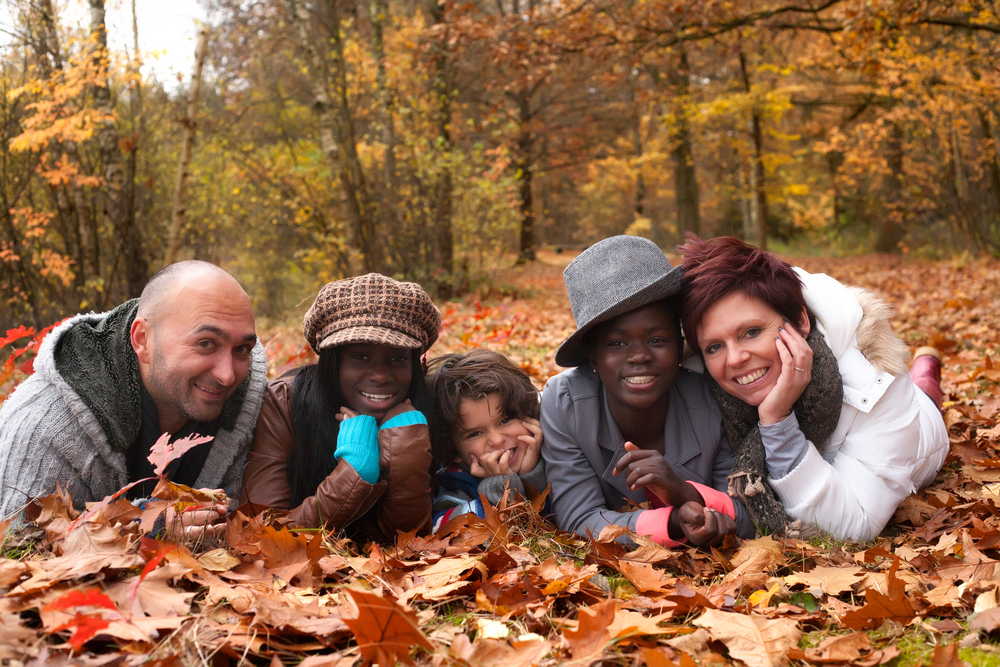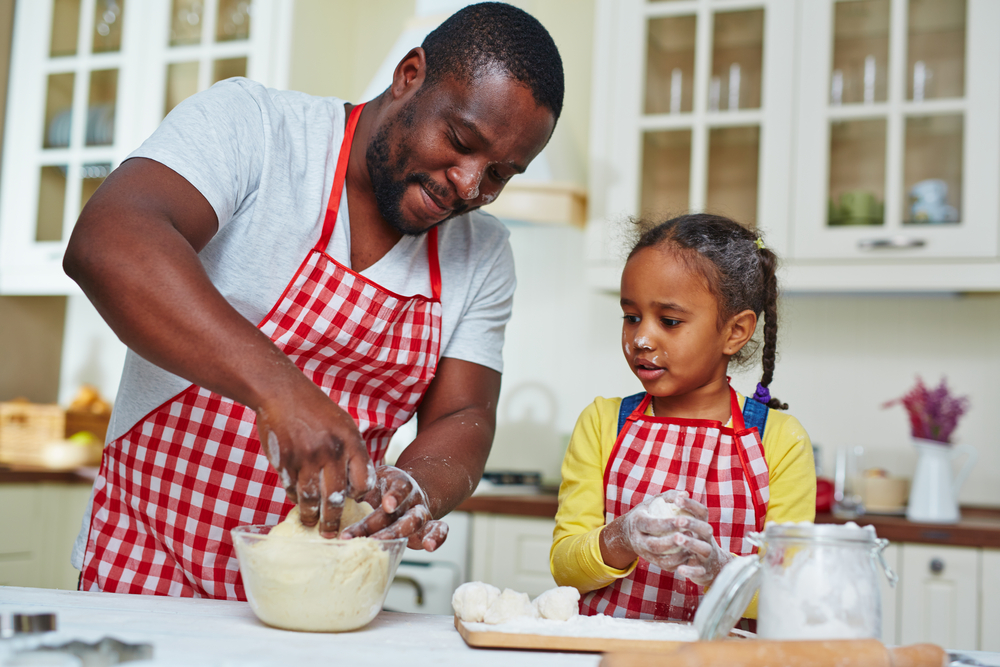
3 Helpful Tips For Transracial Foster Parenting
October 23, 2020
4 New Holiday Traditions Just For Foster Families
November 20, 2020Cooking is the perfect combination of science, math, social studies, and language arts — with a dash of creativity thrown into the mix! From reading a recipe and measuring ingredients, to trying new foods and working together, there are so many benefits and rewards. Here are four reasons to get cooking with your foster kids!
Cooking Creates Strong Family Bonds
Sitting down for a family meal and conversation around the kitchen table helps to create strong family bonds, and it all starts with cooking at home. According to The Family Dinner Project, cooking and enjoying dinners together as a family can lower the rate of substance abuse, teen pregnancy, and depression and increase grade-point averages, resilience, and self-esteem, which are especially important benefits for children in foster care. There is no better or more natural way to help a parent connect with a child or teenager.
Cooking Boosts Confidence And Life Skills
Creating a weekly menu, making a grocery list, and shopping together helps children and teens learn to set goals, plan ahead, and understand a budget. In addition to these valuable life skills, learning to cook allows older kids the chance to contribute as a member of the family and helps them become more self-reliant as they head towards adulthood. But there are even more rewards to cooking with your foster kids. Each setback teaches resilience and each success helps to boost confidence and growth.
Cooking Encourages Healthier Eating
The kitchen is the perfect place to discuss nutrition and healthy eating habits with foster children and teenagers. It also gives you the opportunity to teach kids about food safety, washing hands, and making sure the food prep area is kept clean. As an added bonus, children who help prepare meals are more likely to eat what they cook — including veggies! This is a huge benefit if your foster child is a picky eater. If you are not sure how to get started, here are 15 healthy recipes you can cook with your kids.
Cooking Is Educational And Fun
Cooking increases a child’s vocabulary, enhances fine motor skills, and introduces them to scientific and mathematical concepts. It also teaches valuable life skills. Something as simple as reading a recipe, counting eggs, measuring flour, and pouring milk in a measuring cup while baking incorporates both science and math. It also boosts literacy, according to Scholastic. Trying foods from other cultures incorporates an element of social studies as well. Experimenting with ingredients encourages creativity and artistic expression. And best of all, cooking is fun!
Every child needs and deserves to grow up safe and protected from abuse and neglect, and caring foster parents offer children support and stability when they need it most. At Camelot Care Centers, we specialize in higher-level foster care for children and adolescents that need extra support. We partner with our foster parents/homes to provide trauma informed care and additional services, including in-home counseling, parent support and training, tele-psychiatry, and therapeutic mentoring, to maintain children at the least restrictive, yet most appropriate level of care. Camelot Care Centers (“Camelot”) is a Child Welfare Agency.




